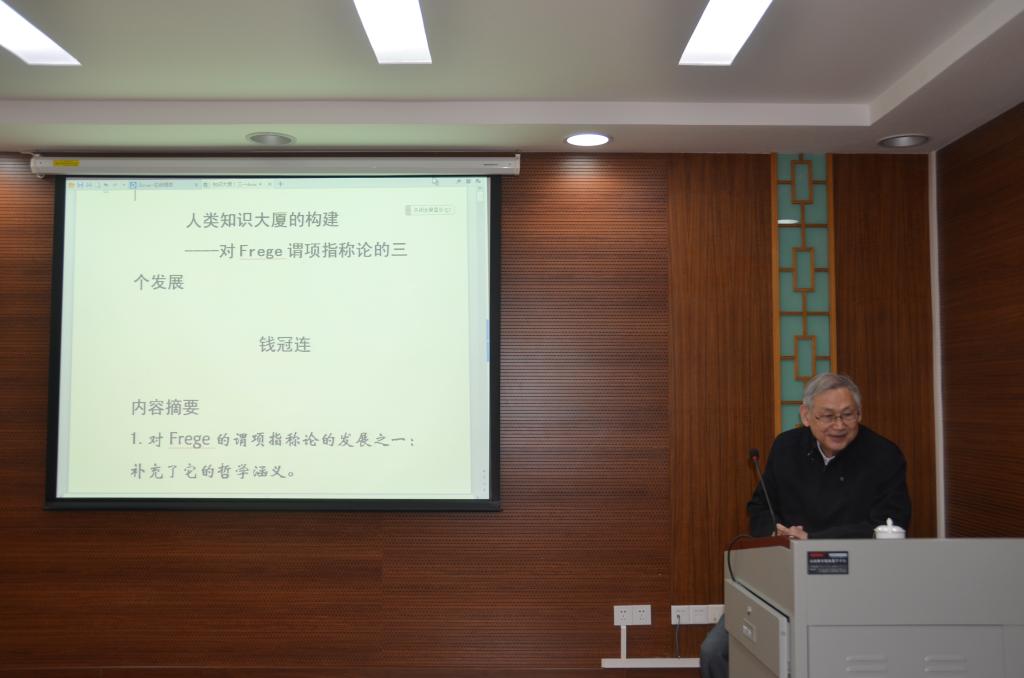The famous linguist Prof. Qian Guanlian delivered a lecture entitled “Constructing the Edifice of Human Knowledge: Three Developments of Frege’s Theory of Predicate Reference”on April 16th,2015 inthe lecture room of theNational Key Research Centerfor Linguistics and Applied Linguistics.
Prof. Qian first contextualized the talk by pointing out the philosophical meaning of predicate and predication based on the phenomenon that the concept of “horse” is not given or saturated by the name “horse” itself unless the predicate has been used. Predicate is the logical category of expressions used to attribute properties and relations to things, and is thus the primary vehicle for creating and accumulating human knowledge. After the contextualization, Prof. Qian proposed a new concept of “dangling predicate” for modifying and enriching the description of subject-predicate. Crucially, a strict logical connection between dangling and primary predicate therefore becomes determinative for a clear and complete thought, and the edifice of human knowledge is thereby constructed. Furthermore, he divided the edifice of human knowledge into three parts: 1) The set of factual sentences and logically true sentences; 2) the set of propositions linguistically formulated as “I know that-clause and accept it” or “I know that-clause but I repudiate it”; 3) the set of propositions linguistically formulated as “Knowing that-clause, I propose/find/discover that-clause”. Among them, the logically true sentence, derived from deduction, conjecture and hypothesis, was highlighted by Prof. Qian due to its prospective nature.
At the end of his lecture, Prof. Qian Guanlian drew an analogy between predicate/predication and the backbone of the edifice of human knowledge.

